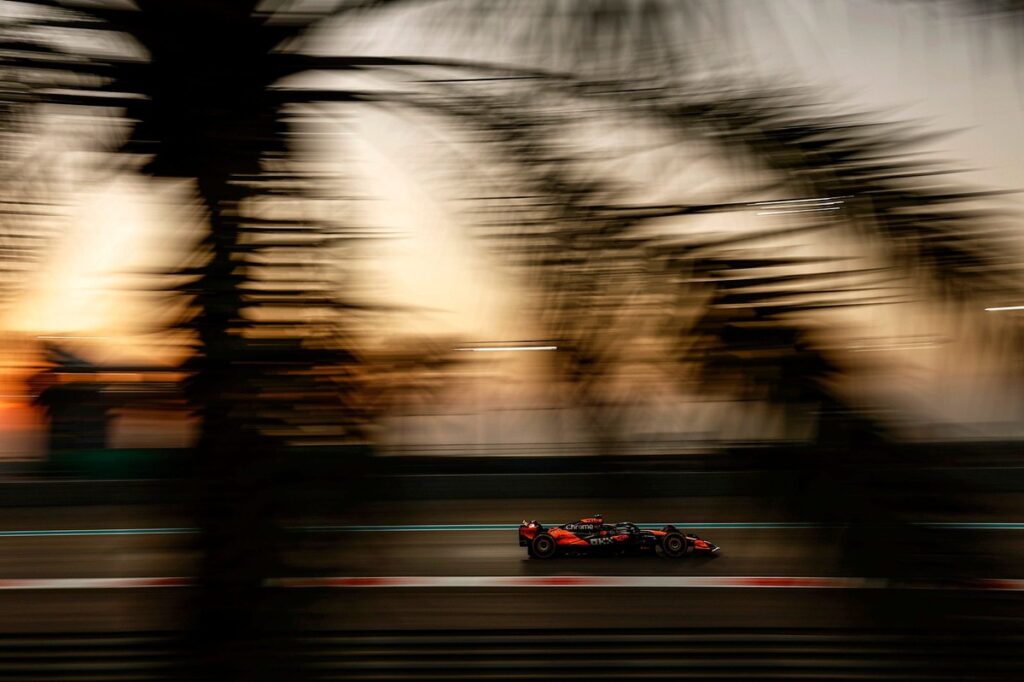Pirelli remains unsure about exactly where its new softest C6 compound will now race, after it proved to only be good for “part of a lap” in Abu Dhabi’s tyre test on Tuesday.
F1’s official tyre supplier is introducing an extra soft compound into its range for specific street circuits in 2025, which it hopes will offer better performance and open up strategy options.
The initial idea was for it to be considered for the Monaco, Canadian, Singapore and Las Vegas Grands Prix.
However, its potential remains uncertain after teams tried it out in Abu Dhabi on Tuesday and found that it was already overheating before it had completed a full lap at speed.
Pirelli head of F1 Mario Isola admitted that Abu Dhabi’s track layout and hot temperatures were not perfect for getting a proper gauge on it, and that more analysis was now needed before deciding exactly where it could be used next year.
“The C6 was working well for some teams, or a bit better than the C5 for some of them, but similar for others,” he explained.
“The feeling was that it was working well in the first part of the circuit, but in the third sector, where you require quite a lot of traction, the degradation is high since lap one.
“If we confirm from the data this indication, then it means that we have to consider the races where we are going to select the C6.
Ryo Hirakawa, Haas VF-24
Photo by: Zak Mauger / Motorsport Images
“An initial idea was Monaco, Montreal, Singapore and Las Vegas, but we will have a look at the data, have a look at how the C5 performed this year, and then decide for 2025.”
Asked if the degradation on the C6 was higher than expected, Isola said: “It is difficult to really understand because the C6 was tested only a couple of times.
“So Abu Dhabi was important for us to understand how soft it is, and it seems that it is good for a part of the lap, but probably not enough to select the C6 for Abu Dhabi.”
While questions remain about the C6, Pirelli was encouraged by other findings for the new range of 2025 tyres that were tried out.
Isola said targets of the new tyres to improve integrity, reduce overheating, minimise graining and have a more consistent gap between compounds appeared to have delivered based on early analysis of the test.
“They were running in higher temperatures, so the fact that the overheating was similar is good news because that means in comparable conditions it is probably less,” he said.
“Abrasion is lower. That is another element we wanted to improve, because this year we had some graining, and we want to reduce the graining.
“We also tested all the five compounds and the delta between the five compounds seems to be quite well spaced. The C2 is closer to the C3, and there is more or less half a second between compounds.”
In this article
Be the first to know and subscribe for real-time news email updates on these topics
Subscribe to news alerts
Read the full article here

